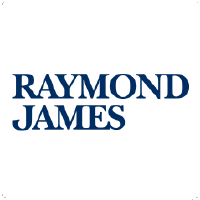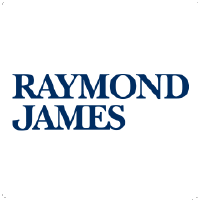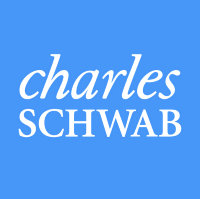
Raymond James Financial Inc
NYSE:RJF


| US |

|
Johnson & Johnson
NYSE:JNJ
|
Pharmaceuticals
|
| US |

|
Berkshire Hathaway Inc
NYSE:BRK.A
|
Financial Services
|
| US |

|
Bank of America Corp
NYSE:BAC
|
Banking
|
| US |

|
Mastercard Inc
NYSE:MA
|
Technology
|
| US |

|
UnitedHealth Group Inc
NYSE:UNH
|
Health Care
|
| US |

|
Exxon Mobil Corp
NYSE:XOM
|
Energy
|
| US |

|
Pfizer Inc
NYSE:PFE
|
Pharmaceuticals
|
| US |

|
Palantir Technologies Inc
NYSE:PLTR
|
Technology
|
| US |

|
Nike Inc
NYSE:NKE
|
Textiles, Apparel & Luxury Goods
|
| US |

|
Visa Inc
NYSE:V
|
Technology
|
| CN |

|
Alibaba Group Holding Ltd
NYSE:BABA
|
Retail
|
| US |

|
3M Co
NYSE:MMM
|
Industrial Conglomerates
|
| US |

|
JPMorgan Chase & Co
NYSE:JPM
|
Banking
|
| US |

|
Coca-Cola Co
NYSE:KO
|
Beverages
|
| US |

|
Walmart Inc
NYSE:WMT
|
Retail
|
| US |

|
Verizon Communications Inc
NYSE:VZ
|
Telecommunication
|
Utilize notes to systematically review your investment decisions. By reflecting on past outcomes, you can discern effective strategies and identify those that underperformed. This continuous feedback loop enables you to adapt and refine your approach, optimizing for future success.
Each note serves as a learning point, offering insights into your decision-making processes. Over time, you'll accumulate a personalized database of knowledge, enhancing your ability to make informed decisions quickly and effectively.
With a comprehensive record of your investment history at your fingertips, you can compare current opportunities against past experiences. This not only bolsters your confidence but also ensures that each decision is grounded in a well-documented rationale.
Do you really want to delete this note?
This action cannot be undone.

| 52 Week Range |
106.39
170.1
|
| Price Target |
|
We'll email you a reminder when the closing price reaches USD.
Choose the stock you wish to monitor with a price alert.

|
Johnson & Johnson
NYSE:JNJ
|
US |

|
Berkshire Hathaway Inc
NYSE:BRK.A
|
US |

|
Bank of America Corp
NYSE:BAC
|
US |

|
Mastercard Inc
NYSE:MA
|
US |

|
UnitedHealth Group Inc
NYSE:UNH
|
US |

|
Exxon Mobil Corp
NYSE:XOM
|
US |

|
Pfizer Inc
NYSE:PFE
|
US |

|
Palantir Technologies Inc
NYSE:PLTR
|
US |

|
Nike Inc
NYSE:NKE
|
US |

|
Visa Inc
NYSE:V
|
US |

|
Alibaba Group Holding Ltd
NYSE:BABA
|
CN |

|
3M Co
NYSE:MMM
|
US |

|
JPMorgan Chase & Co
NYSE:JPM
|
US |

|
Coca-Cola Co
NYSE:KO
|
US |

|
Walmart Inc
NYSE:WMT
|
US |

|
Verizon Communications Inc
NYSE:VZ
|
US |
This alert will be permanently deleted.
 Raymond James Financial Inc
Raymond James Financial Inc
 Raymond James Financial Inc
Additional Paid In Capital
Raymond James Financial Inc
Additional Paid In Capital
Raymond James Financial Inc
Additional Paid In Capital Peer Comparison
Competitors Analysis
Latest Figures & CAGR of Competitors

| Company | Additional Paid In Capital | CAGR 3Y | CAGR 5Y | CAGR 10Y | ||
|---|---|---|---|---|---|---|

|
Raymond James Financial Inc
NYSE:RJF
|
Additional Paid In Capital
$3.3B
|
CAGR 3-Years
16%
|
CAGR 5-Years
11%
|
CAGR 10-Years
10%
|
|

|
Goldman Sachs Group Inc
NYSE:GS
|
Additional Paid In Capital
$61.4B
|
CAGR 3-Years
3%
|
CAGR 5-Years
2%
|
CAGR 10-Years
2%
|
|

|
Morgan Stanley
NYSE:MS
|
Additional Paid In Capital
$29.5B
|
CAGR 3-Years
1%
|
CAGR 5-Years
4%
|
CAGR 10-Years
2%
|
|

|
Charles Schwab Corp
NYSE:SCHW
|
Additional Paid In Capital
$27.5B
|
CAGR 3-Years
1%
|
CAGR 5-Years
43%
|
CAGR 10-Years
21%
|
|

|
Robinhood Markets Inc
NASDAQ:HOOD
|
Additional Paid In Capital
$12.1B
|
CAGR 3-Years
349%
|
CAGR 5-Years
N/A
|
CAGR 10-Years
N/A
|
|

|
Interactive Brokers Group Inc
NASDAQ:IBKR
|
Additional Paid In Capital
$1.8B
|
CAGR 3-Years
8%
|
CAGR 5-Years
14%
|
CAGR 10-Years
11%
|
|
Raymond James Financial Inc
Glance View
Raymond James Financial Inc. is a firm that embodies the spirit of meticulous stewardship and strategic acumen, reminiscent of the old financial wisdom where relationships and integrity are paramount. Founded in 1962 by Bob James, the company has grown organically and through smart acquisitions into a diversified holding entity for diverse financial services. It sits proudly at the intersection of traditional brokerage services and modern financial planning. The company's primary mode of operation revolves around its four core segments: Private Client Group, Capital Markets, Asset Management, and Banking. Through these channels, it offers a comprehensive palette of services, including financial planning, wealth management, and investment banking, among others. Raymond James distinguishes itself in the marketplace by emphasizing close, personalized relationships with its clients, blending the rigor of expert financial advice with the warmth of genuine customer care. Earnings at Raymond James are derived largely from advisory fees, commissions, and net interest spread—essentially the difference between interest income on loans and deposits and the interest expense incurred on the funds borrowed. By nurturing a robust advisor network in its Private Client Group, the firm stands as a resilient pillar in wealth management, providing tailored investment solutions that foster long-term client relationships. Meanwhile, the Capital Markets division serves a dual clientele of institutional investors and corporations, generating income through underwriting, advisory services, and research. The banking segment complements these operations, contributing to a balanced and diversified revenue stream. Raymond James has managed to strike an elusive balance between scale and locality, ensuring each advisor can offer bespoke advice supported by the robust resources of a major financial institution, ultimately securing the confidence and trust of its clientele while driving steady income through its thoughtful operations.

See Also
What is Raymond James Financial Inc's Additional Paid In Capital?
Additional Paid In Capital
3.3B
USD
Based on the financial report for Sep 30, 2024, Raymond James Financial Inc's Additional Paid In Capital amounts to 3.3B USD.
What is Raymond James Financial Inc's Additional Paid In Capital growth rate?
Additional Paid In Capital CAGR 10Y
10%
Over the last year, the Additional Paid In Capital growth was 3%. The average annual Additional Paid In Capital growth rates for Raymond James Financial Inc have been 16% over the past three years , 11% over the past five years , and 10% over the past ten years .




























 You don't have any saved screeners yet
You don't have any saved screeners yet
